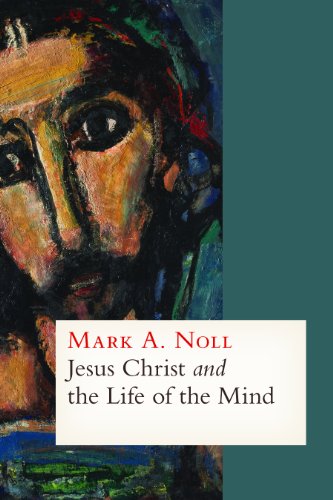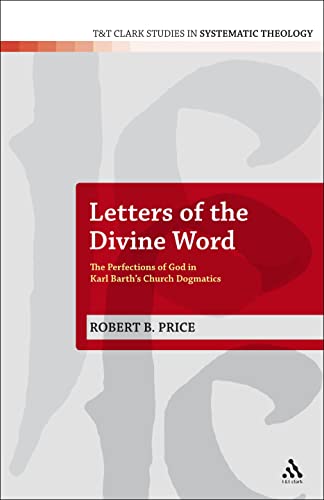Jesus Christ and the Life of the Mind
Written by Mark A. Noll Reviewed By Bradley G. GreenJesus Christ and the Life of the Mind is a sort of “sequel” to The Scandal of the Evangelical Mind (Eerdmans, 1994). If in that earlier volume Noll laments that the scandal of the evangelical mind is that there is not much of an evangelical mind, in the present volume Noll seeks to offer something of an update on the current status of the evangelical mind and to suggest how the evangelical faith might inform the life of the mind. As he writes in the introduction,
My contention in this book is that coming to know Christ provides the most basic possible motive for pursuing the tasks of human learning. . . .
The message in this book for my fellow evangelicals can be put simply: if what we claim about Jesus Christ is true, then evangelicals should be among the most active, most serious, and the most open-minded advocates of general human learning. Evangelical hesitation about scholarship in general or about pursuing learning wholeheartedly is, in other words, antithetical to the Christ-centered basis of the evangelical faith. (pp. ix–x)
After an opening chapter summarizing classical Christology, chapters 2–4 summarize how the person of Christ (chs. 2–3) and atonement theology (ch. 4) might generate insights for the Christian intellectual endeavor. Chapters 5–7 then apply these theological insights to three academic disciplines (history, science, and biblical studies). Chapter 8 functions as a brief summary, and then the Postscript (“How Fares the ‘Evangelical Mind’?”) offers a type of big-picture update on the state of the evangelical mind—particularly how it has fared since his 1994 book.
Perhaps the chief value of Jesus Christ and the Life of the Mind is that Noll outlines what chief insights for advancing the intellectual life might flow from the heart of the Christian faith: the person and work of Christ (Noll’s attention is, however, more focused on the person of Christ than the work of Christ). Thus, in chapter 2, Christ is the creator, so in studying created things, we are studying what Christ himself has created (p. 25); since all things cohere in Christ, no aspect of reality is sequestered from his lordship (pp. 26–30); if Christ is sovereign over all things, God is then “attached” to all arenas of study (pp. 30–33); the Word was made flesh, so material reality is worthy of attention (pp. 33–35); the incarnation reminds us that attention to this particular world is legitimate (pp. 35–37); that Jesus was fully human in his incarnate state justifies studying human personality (pp. 37–38); the beauty of God, of whom the incarnate Son is the clearest manifestation, encourages attention to beauty (pp. 38–39). Chapter 3 suggests that attention to classical Christology yields four key principles that can inform and encourage Christian scholarship: doubleness (or duality), contingency, particularity, and self-denial.
One might quibble that while Noll seeks to ask what the atonement has to do with the intellectual life—certainly a worthy endeavor—the atonement chapter (ch. 4) is both thin and cursory, as Noll seems to recognize, though offering avenues for further exploration.
Some readers may find chapters 5–7 more provocative. Noll applies key christological truths (summarized in chs. 1–4) to the disciplines of history, science, and biblical studies, respectively.
Chapter 5 (on history) properly contends that given the truthfulness of Christianity, the Christian can believe in the possibility of historical knowledge and at arriving at some real—if non-exhaustive—understanding of the past. Readers will likely be divided on the question of providence and history writing. Noll distances himself from folks like Iain Murray, whom Noll sees as being too optimistic about discerning God’s providential hand. But Noll does not deny that Christian historians should attend to the question of providence in their writings.
In chapter 6 (on science), Noll’s framework is fairly straightforward and unobjectionable. Historic Christianity encourages attention to the created order, and there will ultimately be no conflict between God’s “two books”: nature and Scripture. Likewise, the idea that historic Christianity encourages a “come and see” approach to the created order is a good and proper summary of a legitimate principle: given that God created, governs, and upholds the world and given that God has created man with the capacity to know, reason, etc., there is every reason to attend to the created order and every confidence that humans can come to know and understand the world—if in incomplete and imperfect ways. And Noll’s contention that many contemporary thinkers have been shaped by the following three key historical turning-points is a helpful notion: (1) univocal metaphysics (following Duns Scotus, God’s “being and the being of all other things share a common essence”; p. 106); (2) harmonization between the “two books”; and (3) natural theology (as Noll summarizes: “ not only did God create and providentially order the natural world, but humans could figure out exactly how and why God ordered creation as he did ”; p. 108). Noll elevates Warfield as an example of christologically informed scholarship as one committed to the (1) full deity and (2) full humanity of Christ and by analogy a “concursus” understanding of biblical inspiration (where Scripture is the result of both the divine author and human author/s). Warfield likewise could affirm that (1) God created and governed the world and (2) evolution (of a non-naturalistic kind) could be fully accepted. [Editor’s note: Cf. Fred G. Zaspel, “B. B. Warfield on Creation and Evolution,” Them 35 (2010): 198–211, available at http://thegospelcoalition.org/themelios/issue/35–2.] Given that volume takes for granted the general legitimacy of something like theistic evolution and it subtly dismisses more conservatives approaches, one wonders if Noll would have chosen Warfield if Warfield’s “concursus” approach had led him to reject evolutionary theory. Also, how does a “come and see” approach actually work when one takes Scripture to be the touchstone of all reality and when one considers the noetic effects of sin? That is, does the “come and see” approach encourage the kind of intellectual divide Noll is trying so valiantly to discourage—i.e., a divide where (1) humans are able—generally—to know the world as it is, through observation, while (2) Scripture must be interpreted? Thus, if Noll’s goal is to explore the reality of Jesus Christ and the life of the mind, it is worth asking how finiteness and sinfulness effects such a “looking.” And if Scripture ultimately expresses the mind and will of the triune God, are we not then back to the question of how to relate the “two books”—nature and Scripture?
After briefly summarizing J. I. Packer and B. B. Warfield on the nature of the Bible, chapter 7 (on biblical studies) is an extended summary and review of Peter Enns’s Inspiration and Incarnation: Evangelicals and the Problem of the Old Testament. While Noll qualifies his positive evaluation of Enns at the beginning of this section of the book (p. 133), by the end there is little doubt that Noll is quite positive about Enns’s volume (p. 145). This review is not the place for a detailed critique of Enns. But it seems that Enns’s push to emphasize the “humanity” of Scripture in fact functions as a critique of traditional evangelical emphases on the divinely given character of Scripture. That is, Enns’s foil is the more traditional understandings of Scripture as divinely given and therefore uniquely authoritative. Thus, rather than serving as an exemplar of how to apply classical Christology to the intellectual task, Enns’s work seems to misappropriate classical christological insights.
Noll’s volume is a helpful theological exploration of a central question: what does Jesus Christ have to do with the life of the mind? For readers wrestling with this question, Noll ably fleshes out how attention to the reality of the person of Christ can inform the intellectual life (I do wish there was more sustained attention to the work of Christ). I suspect readers will be somewhat more divided on how the many wonderful christological insights are applied to the disciplines of history, science, and biblical studies. I hope Noll’s optimism about the state of the evangelical mind is warranted, and I join with him in praying that through attending to Christ Christians might continue to develop and thrive intellectually, for indeed, as Noll (following Paul!) points out, it is Christ himself “in whom are hidden all treasures of wisdom and knowledge.”
Bradley G. Green
Bradley G. Green
Union University
Jackson, Tennessee, USA
Other Articles in this Issue
The gist of this new book by Peter Enns is that evangelicals should revise their expectations of Genesis and Paul—with reference to Adam and the fall—in order to relieve perceived tensions between Christianity and evolution...
In June 2011, the Presbyterian Church in America (PCA) passed an overture entitled, “A Call to Faithful Witness...
I was very grateful to David for sending me a copy of his essay before publication...
Is it stating the obvious to say that a children’s bible is not a Bible? Perhaps...
Sacramental Supersessionism Revisited: A Response to Martin Salter on the Relationship between Circumcision and Baptism
by David GibsonMartin Salter has recently argued that Reformed paedobaptists are mistaken in citing Col 2:11–12 ‘as evidence that baptism replaces circumcision as the covenant sign signifying the same realities...







